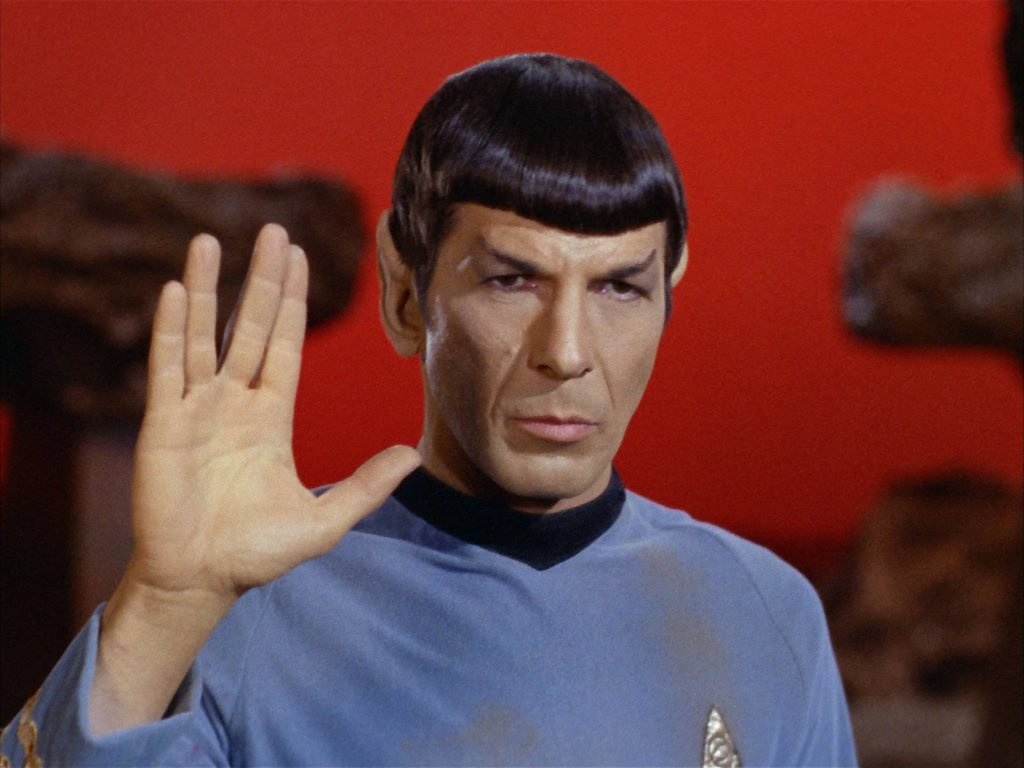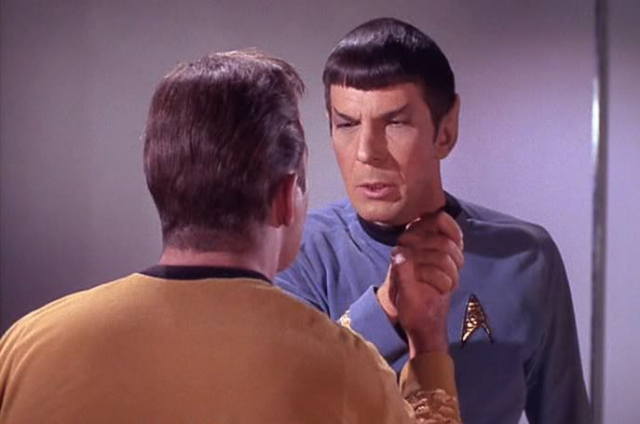Few characters in science fiction have left as indelible a mark as Spock, the half-Vulcan, half-human officer from Star Trek. Since his debut in the original series, Spock has become a cultural icon, reshaping our understanding of the interplay between logic and emotion.
The Logic vs. Emotion Dilemma
At the core of Spock’s character lies a profound internal struggle. His Vulcan heritage prizes logic and the suppression of emotion, while his human side grapples with deep-seated feelings. This conflict resonated with viewers, sparking discussions about the role of logic and emotion in decision-making and personal growth.

In the episode “The Devil in the Dark,” Spock’s logical approach to understanding an alien life form contrasts sharply with the crew’s emotional reactions. This scenario exemplifies how Spock’s character often served as a lens through which the show explored complex ethical dilemmas.
Cultural Icon Status
Spock’s influence extends far beyond the Star Trek universe. His signature Vulcan salute and catchphrase “Live long and prosper” have become instantly recognizable symbols in popular culture. The character’s stoic demeanor and logical mindset have inspired countless references and parodies across various media.

Moreover, Spock’s mixed heritage has made him a symbol of diversity and inclusion. His struggle to find balance between two cultures resonates with many who grapple with dual identities in the real world.
Impact on Science Fiction
Spock’s character has had a lasting impact on the science fiction genre. He popularized the archetype of the logical, emotionally restrained alien or artificial being trying to understand humanity. This trope has been explored in numerous works since, from Data in Star Trek: The Next Generation to the android Ava in Ex Machina.
The character’s scientific approach to problem-solving also helped elevate the role of science in popular science fiction, inspiring a generation of viewers to pursue careers in STEM fields.
Evolution Across Star Trek Adaptations
As Star Trek has been reimagined over the decades, so too has Spock’s character evolved. In the original series, Leonard Nimoy portrayed Spock as stoic and logical, with rare glimpses of emotion. The films, particularly “Star Trek II: The Wrath of Khan,” delved deeper into Spock’s emotional capacity, culminating in his self-sacrifice to save the Enterprise.
The 2009 reboot, with Zachary Quinto as Spock, presented a younger, more emotionally volatile version of the character. This iteration explored Spock’s inner turmoil more openly, reflecting changing attitudes towards emotional expression.
In recent series like “Star Trek: Discovery” and “Star Trek: Strange New Worlds,” Ethan Peck’s portrayal of Spock continues to evolve the character. These shows delve into Spock’s family relationships and early career, adding new layers to his backstory while maintaining the essential struggle between logic and emotion.
Spock’s Lasting Legacy
Spock’s legacy is a testament to the character’s depth and the universal themes he embodies. He continues to inspire discussions about the nature of humanity, the value of diversity, and the balance between rational thought and emotional intelligence.

As Star Trek and popular culture continue to evolve, Spock remains a touchstone for exploring what it means to be human. His journey reminds us that the pursuit of logic need not come at the expense of emotional growth, and that true wisdom lies in finding a balance between the two.
In the end, Spock’s most profound lesson may be that embracing our full selves – both logical and emotional – is the key to personal growth and understanding. As he famously said, “The needs of the many outweigh the needs of the few,” a philosophy that continues to resonate with audiences and shape the landscape of science fiction.
Leave a Reply